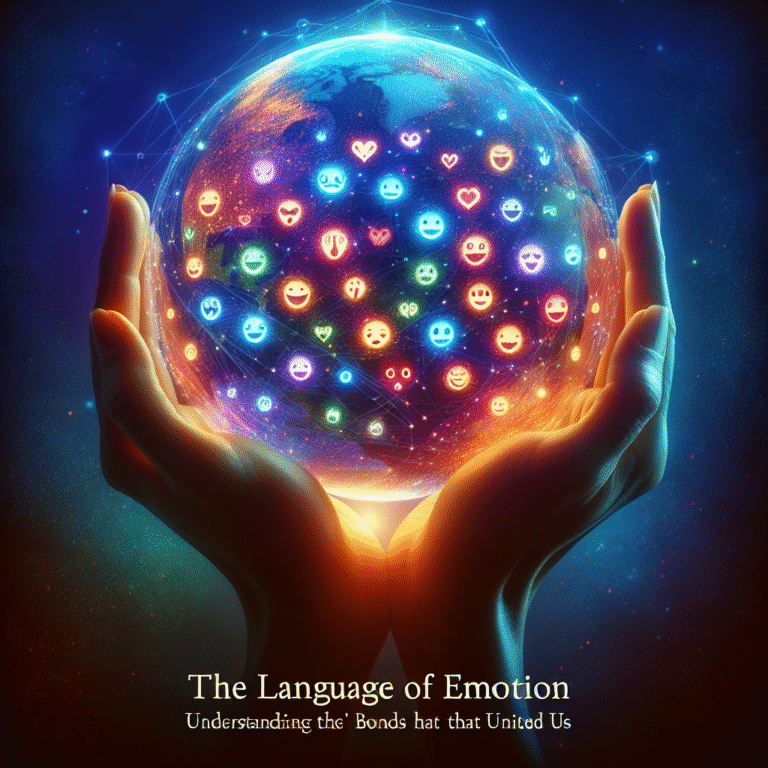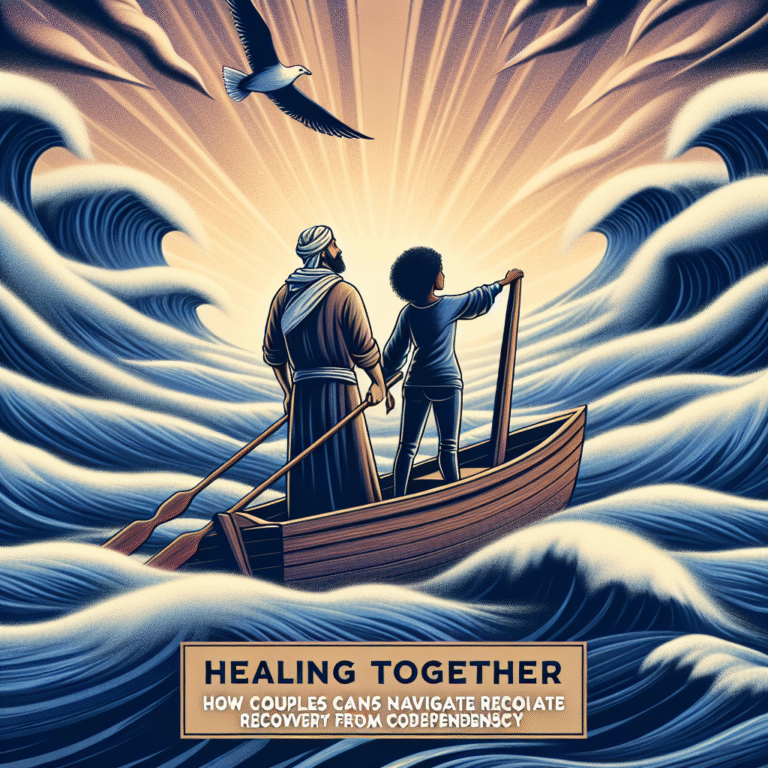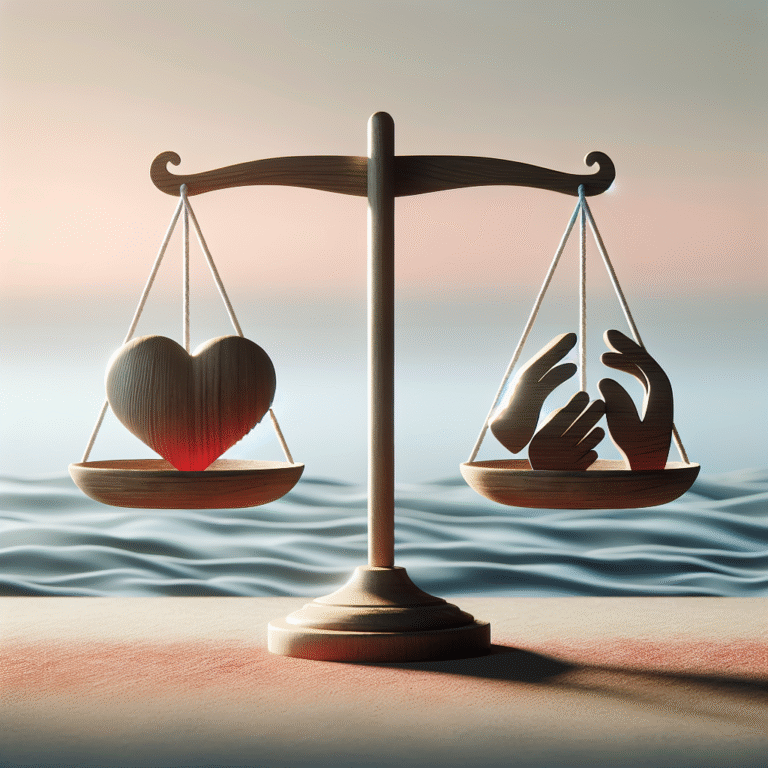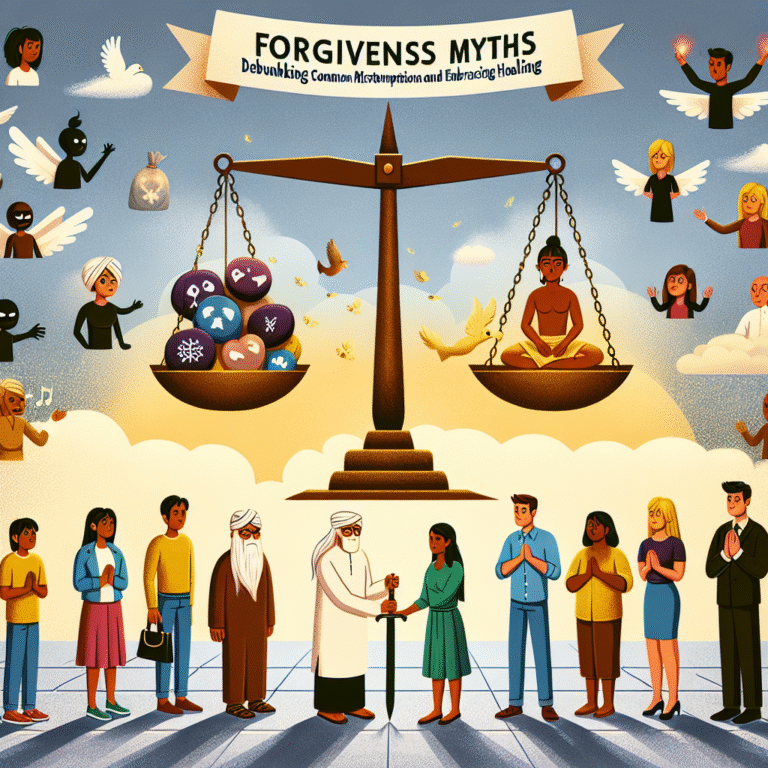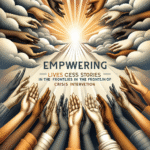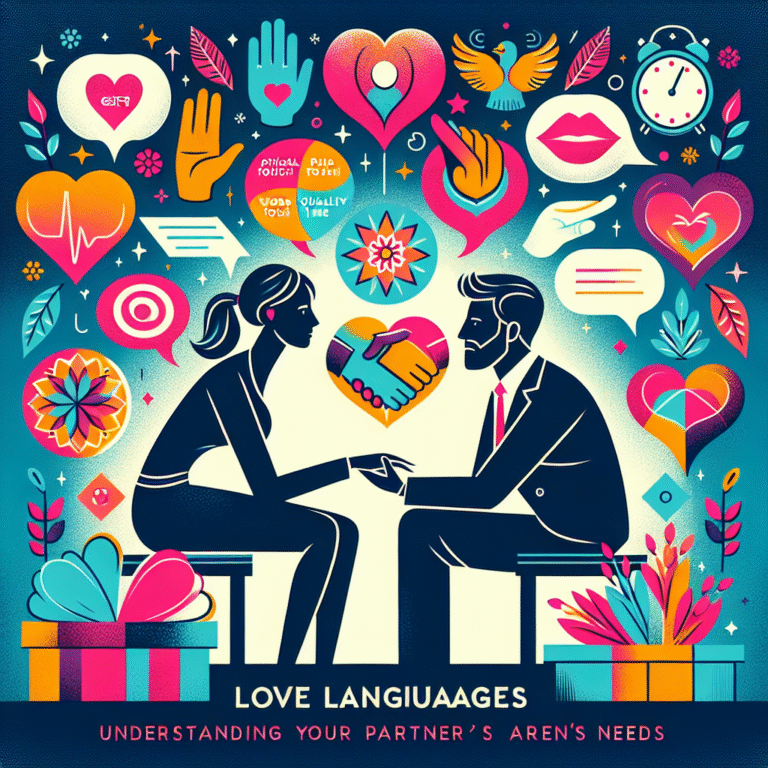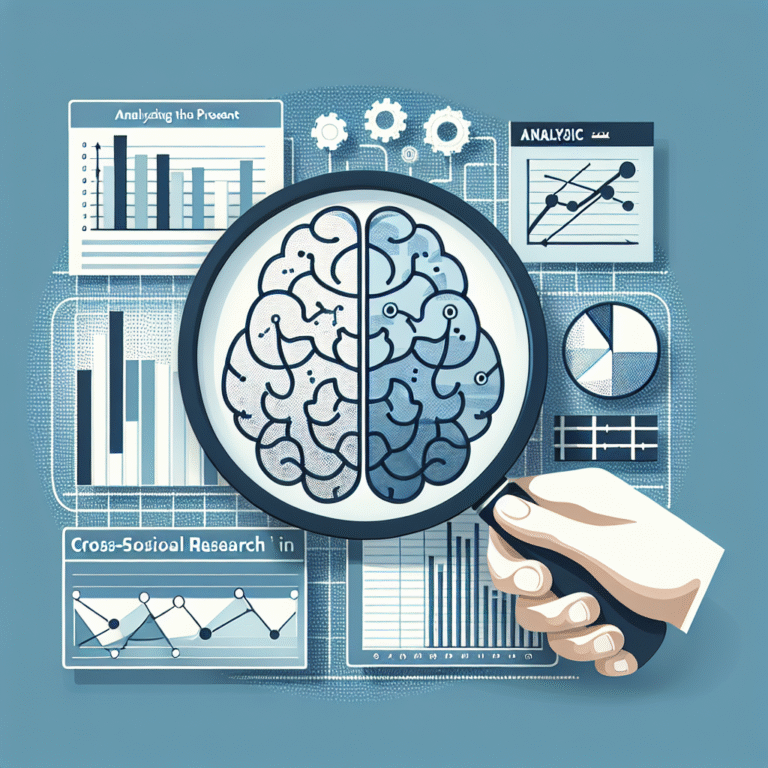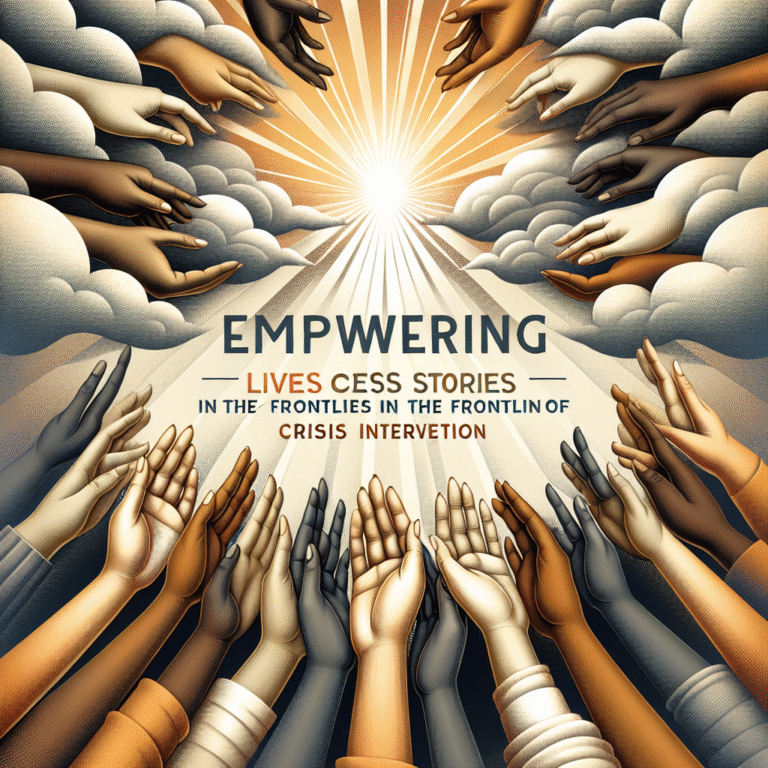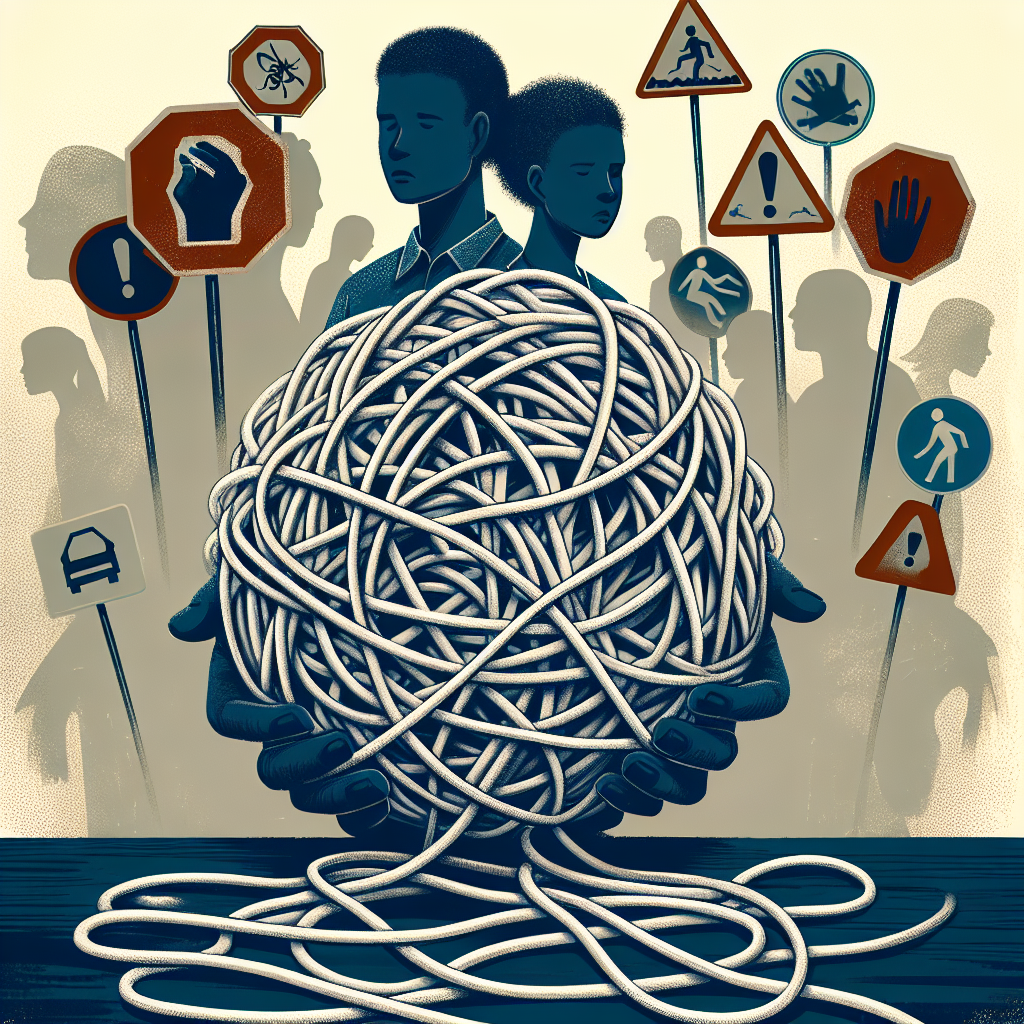
Introduction
Have you ever felt like your happiness hinges on someone else’s approval? Or perhaps you find yourself consistently prioritizing your partner’s needs over your own, leading you to question your sense of self? If so, you might be grappling with what many call the hidden struggles of codependency. Understanding the hidden struggles of codependency: signs you might be in a codependent relationship is crucial not just for your mental health, but for fostering healthier interactions in all your relationships.
This article delves deep into the intricacies of codependency, exploring not only its signs but also the emotional toll it can take. With engaging real-world case studies, practical insights, and a conversational tone, we aim to shed light on this often-misunderstood topic. By the end, you’ll walk away with actionable takeaways to help you navigate any codependent patterns in your relationships.
What is Codependency?
Before we delve into the specific signs, let’s define codependency. Codependency is a behavioral condition where an individual prioritizes the needs of others above their own, leading to dysfunctional relationship dynamics. It often stems from deep-seated issues, such as low self-esteem, childhood trauma, or a desire for external validation.
Characteristics of Codependency
- Lack of Boundaries: Codependent individuals often struggle to set healthy boundaries, leading to feeling overwhelmed or taken for granted.
- People-Pleasing: A constant need to satisfy others can overshadow personal desires and preferences.
- Low Self-Worth: Codependent individuals frequently rely on others to validate their self-worth.
- Fear of Abandonment: A persistent fear that your partner will leave you can lead you into a cycle of clinginess.
Understanding these characteristics is the first step toward recognizing the hidden struggles of codependency: signs you might be in a codependent relationship.
Signs You Might Be in a Codependent Relationship
1. Constantly Putting Others First
Are you always the one who sacrifices your own needs? In codependent relationships, one partner often prioritizes the other’s happiness over their own. This can manifest in various ways, such as skipping plans with friends to cater to a partner’s mood or ignoring personal health just to keep the peace.
Case Study: Sarah and Robert
Sarah consistently sacrifices her weekend plans to stay home with Robert, who struggles with anxiety. While her intentions are noble, she is neglecting her social needs, leading to resentment. Recognizing this imbalance is vital for both her and Robert to develop healthier patterns.
2. Difficulty Expressing Your Own Needs
Is it hard for you to voice your own desires? Codependent individuals often feel uncomfortable expressing their own needs, fearing it might upset the other person. This can quickly create an unbalanced dynamic where one partner feels overburdened and the other feels invisible.
3. Feeling Responsible for Others’ Emotions
Do you find yourself trying to fix others’ problems or feeling anxious about their feelings? If you feel responsible for managing your partner’s emotions—walking on eggshells to keep them happy—this is a significant red flag indicative of the hidden struggles of codependency: signs you might be in a codependent relationship.
Case Study: Lisa and David
Lisa often alters her behaviors to prevent David from getting upset, resulting in unspoken tensions. Understanding this cycle can be a turning point toward nurturing a healthier relationship dynamic.
4. The Fear of Being Alone
Is the thought of being single terrifying? Codependent individuals often cling to relationships due to an intense fear of abandonment. This fear can lead to staying in unhealthy relationships, trapping both partners in a cycle of dysfunction.
5. An Unbalanced Power Dynamic
In many codependent relationships, one partner tends to dominate decision-making. This imbalance can stifle collaboration and innovation between partners, leading to frustration and a disconnection of intimacy.
Case Study: Andrew and Jessica
Andrew always calls the shots in their relationship, whether it’s deciding what to watch or where to eat. While Jessica appears compliant, she’s frustrated and feels unheard, highlighting the need for equity in their partnership.
Emotional Toll of Codependency
Living in a codependent relationship can significantly affect mental health. Individuals may experience:
- Chronic Stress: The constant need to please others can be exhausting.
- Anxiety and Depression: The lack of boundaries and voice can lead to profound emotional distress.
- Identity Loss: Over time, the personal identity can fade into the background, leading to confusion about personal desires and goals.
Steps Toward Recovery
Recognizing the hidden struggles of codependency: signs you might be in a codependent relationship is the first step to recovery. Here are actionable steps to begin the healing process:
- Set Boundaries: Identify areas where you can draw a line. Ensure that you prioritize your own needs as much as others’.
- Practice Self-Care: Engage in activities that fulfill you, whether they are hobbies, exercise, or meditation.
- Seek Professional Help: Therapists can provide tools and frameworks to help you navigate relationship dynamics.
- Communicate Openly: Begin having honest conversations about your feelings and needs with your partner.
- Cultivate Independence: Focus on rediscovering your interests and passions outside of the relationship.
Conclusion
Grasping the hidden struggles of codependency: signs you might be in a codependent relationship is a crucial step toward living a more balanced and fulfilling life. Codependency can feel isolating, but it’s entirely possible to shift these patterns. By building self-awareness, establishing boundaries, and engaging in open communication, you can forge healthier, more nurturing relationships.
FAQs
1. How can I tell if I’m in a codependent relationship?
If you constantly prioritize another person’s needs over yours, struggle to express your own feelings, or feel anxious when apart, these may be signs of codependency.
2. What can I do if I recognize codependency in my relationship?
Start by having open conversations with your partner, set healthy boundaries, and consider seeking therapy for additional support.
3. Is codependency the same as being needy?
While both involve reliance on others, codependency encompasses a broader spectrum of behavior, including emotional manipulation and loss of identity.
4. Can codependent relationships ever be healthy?
With mutual understanding, open communication, and commitment to change, codependent patterns can shift toward healthier dynamics.
5. Where can I find more resources for understanding codependency?
Books, podcasts, and therapy groups focused on relationship health can offer valuable insights and support.
If you recognize any of these hidden struggles in your relationships, remember that change is possible. You have the power to create a life filled with genuine connection, self-love, and mutual respect.





